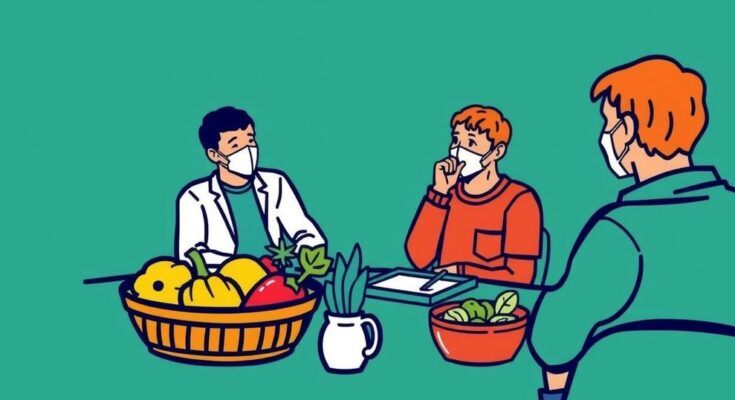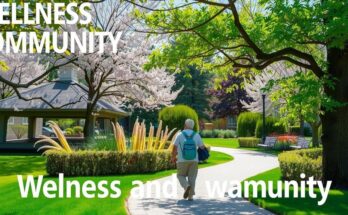On October 10, 2024, the Wellness West forum convened nearly 150 attendees to discuss food insecurity in Chicago’s West Side. Experts highlighted alarming statistics and the health disparities linked to lack of access to nutritious food. Key quotes from panelists reinforced the view that food is a fundamental human right and emphasized the need for community collaboration. Wellness West continues to lead initiatives to improve health equity amidst these challenges.
On October 10th, nearly 150 concerned citizens convened at the Garfield Park Conservatory in Chicago for the forum titled “Bridging the Equity Gap: Food Insecurity on the West Side.” Hosted by Wellness West, a coalition aiming to enhance healthcare access in underserved communities, the event spotlighted the deep-rooted issue of food insecurity affecting diverse neighborhoods. The complete program can be accessed online. The Chicago Food Equity Agenda reveals that 19% of residents face food insecurity, with significantly higher rates in Latinx (29%) and Black (37%) communities. This lack of access to nutritious food contributes to serious health issues, including diabetes and heart disease. Additionally, the Center for American Progress notes that food insecurity costs the U.S. economy a staggering $130.5 billion annually in excess healthcare expenses. The forum opened with compelling speeches from influential figures, including Rep. Camille Lilly and Misty Drake, Executive Director of Wellness West. Donald Dew poignantly questioned why nutritious food is abundant in some areas yet unreachable in others, emphasizing the stark inequities within the city. Participants viewed a video highlighting Wellness West’s initiatives to combat food insecurity, featuring a client’s journey. An impressive panel of experts engaged in a thought-provoking discussion about food security’s multifaceted issues, such as the difference between food deserts and food swamps, and the impact of community health workers. Their insights spurred dialogue on how programs like SNAP are insufficient alone to tackle this dilemma and the role of urban gardens in fostering access. “Food is a basic human right,” stated Amy Laboy from the Greater Chicago Food Depository, advocating for equal access to nutritious options for children. James Brooks emphasized collaboration among various community resources, while Tesa Anewishki clarified the distinction between hunger and food insecurity, reinforcing the need for broader understanding. Supported by the Illinois Healthcare Transformation Collaboratives, Wellness West is focused on bridging care gaps and promoting health equity. Learn more about their initiatives and how you can get involved at www.wellnesswest.org.
Food insecurity stands as a pressing concern in many Illinois neighborhoods, particularly in the West Side of Chicago. It reflects not only a lack of resources but a broader inequality in access to healthy food, often resulting in dire health consequences for affected populations. Forums like the one hosted by Wellness West are crucial in raising awareness and fostering collaboration among community leaders, healthcare providers, and residents to address these systemic issues and work toward equitable solutions.
The Wellness West forum shed light on the impactful yet often overlooked issue of food insecurity in Chicago’s underserved communities. With poignant discussions led by notable leaders and experts, the event highlighted the disparities in access to nutritious food and emphasized the necessity for collective action. The insights shared not only addressed current challenges but also inspired hope for a future where equitable food access is a reality for all neighborhoods.
Original Source: citizennewspapergroup.com



